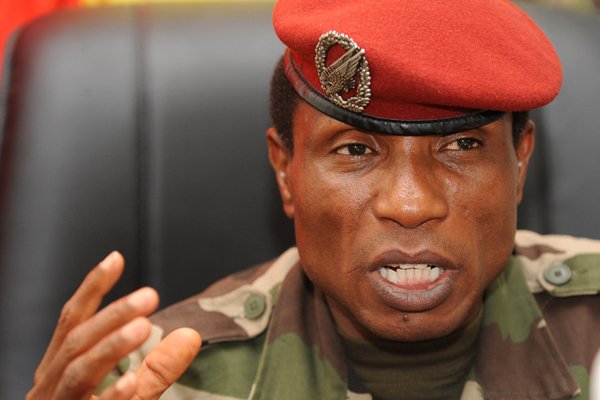Over a decade after 150 were killed Guinea puts Ex-President Moussa Dadis Camara on trial.
The trial of Guinea's former President and 10 others accused of responsibility for a 2009 stadium massacre and mass rape began on Wednesday in the country's capital.
13-years ago, on September 28, 2009, security forces stormed a stadium where tens of thousands of pro-democracy protesters were demonstrating against the president at the time, Capt. Moussa Dadis Camara, who had seized power in a coup.
Capt Camara, 58, seized power in 2008 when long-time President Lansana Conté died, but he was ousted and fled the country not long after the Conakry killings and following an assassination attempt. He had been living in Burkina Faso before returning to Guinea on Sunday.
After Capt Camara left Guinea, an investigation was set up to establish the facts surrounding the tragedy - it sat from 2010 to 2017. During that time some alleged perpetrators were charged, including Capt Camara.
More than 150 people were killed, hundreds of others were wounded and at least 109 women were raped or sexually assaulted, according to a U.N. investigation and witness accounts gathered by Human Rights Watch.
The trial is unprecedented in Guinea, with a new courtroom built in the capital, Conakry, for the occasion. The case is seen by many human rights experts as a test for a West African country in holding army officers to account.
It was the current military junta head - Col Mamady Doumbouya, a U.S trained officer - who came to power after a coup in 2021, who ordered the trial to be held.
Since Colonel Doumbouya seized power in September, 2021, the Guinean authorities have cracked down on civil liberties, including banning protests, dissolving the country’s main pro-democracy coalition, and firing live ammunition at demonstrators. At least seven protesters died in clashes with security forces this summer.
The United Nations has labeled the violence in 2009 as a crime against humanity, and Human Rights Watch said the violence was premeditated.
Witness testimony revealed that hundreds of members of the red beret presidential guard, gendarmes and anti-riot police stormed the stadium and opened fire as civil society activists and opposition supporters were chanting in a largely peaceful atmosphere.
Soldiers later raped dozens of women inside the stadium and around it, sexually assaulted them with their weapons and killed several after raping them, according to testimonies collected by Human Rights Watch. The United Nations said that the security forces were armed with pistols, clubs, knives and AK-47-style rifles, among other weapons.
Read more at BBC News
We need your support
Sri Lanka is one of the most dangerous places in the world to be a journalist. Tamil journalists are particularly at threat, with at least 41 media workers known to have been killed by the Sri Lankan state or its paramilitaries during and after the armed conflict.
Despite the risks, our team on the ground remain committed to providing detailed and accurate reporting of developments in the Tamil homeland, across the island and around the world, as well as providing expert analysis and insight from the Tamil point of view
We need your support in keeping our journalism going. Support our work today.
For more ways to donate visit https://donate.tamilguardian.com.


